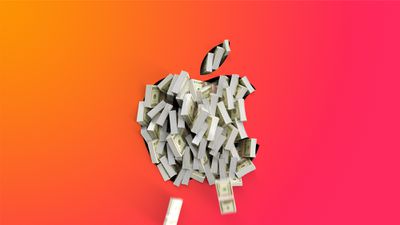Two scammers who stole $1.5 million from Apple over a period of three years using the company's own technology have been sentenced to a combined 13 years in prison.

It was reported in September 2021 that two scammers developed a scheme to use point-of-sale devices stolen from Apple stores to generate fraudulent Apple gift cards between 2015 and 2017.
The scam was enabled through a handheld employee-only point-of-sale device called an "Isaac." Retail employees carry Isaacs around in the store, allowing them to check stock and sell products to customers wherever they are.
One of the scammers simply walked into Apple Stores across the country and waited for opportune moments to steal an Isaac device. They then sat outside the same store, still connected to its Wi-Fi network, and used the logged-in employee account on the Isaac to acquire thousands of dollars worth of digital gift cards.
The digital gift card redemption codes were then loaded into the Wallet app to generate QR codes, which were screenshot and sent via iMessage to the other conspirator, who was then able to walk into other Apple Stores and buy a range of high-value Apple devices. This process was then repeated across the country, allowing the pair to defraud Apple out of more than $1.5 million in total, according to the indictment.
One of the scammers stole $50,000 worth of digital Apple gift cards in Texas, while on the same day, his partner used the gift cards to buy thousands of dollars worth of Apple products in New York. The haul in Southlake, Texas, alone totaled $50,000 using 26 digital gift cards.
The pair were finally caught stealing Isaac devices in Apple Stores on CCTV and were eventually tracked down using their cellphone via GPS, before finally being arrested by the FBI. They subsequently pled guilty to wire fraud.
According to a press release from the United States Attorney's Office in the Northern District of Texas, the perpetrators have now been sentenced to a combined 13 years in federal prison and ordered to pay $1.26 million in restitution to Apple. It is unclear if Apple has made any changes to its internal systems and access to employee accounts on Isaacs to prevent the same scam from being attempted again.





















